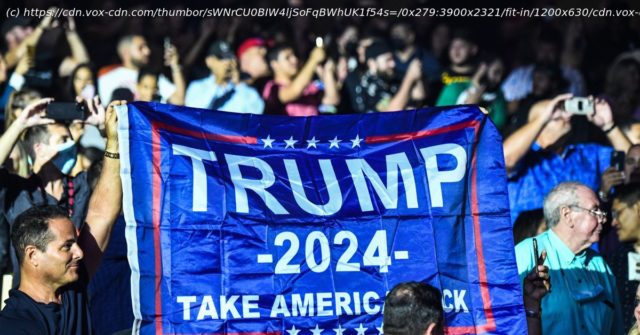There’s no foolproof solution, but there are a few things that could help.
We’re one year removed from the chaos of January 6, 2021 — and perhaps three years away from further chaos in January 2025. Donald Trump is seemingly moving toward another presidential run. His loyalists are trying to gain control of key electoral positions. The GOP base remains loyal to Trump despite (or because of) his attempt to overturn Joe Biden’s presidential election win. Various glaring institutional flaws in the US electoral system remain unaddressed. Whether or not another angry mob materializes, the possibility of another attempt to steal a close election in 2024 remains disturbingly plausible. Still, various actions could be taken to try and stop it from happening again. Some are institutional or technocratic tweaks, and some are electoral battles or longer-term reform efforts. They might not be enough — it’s hard to combat broader systemic forces like identity-based polarization pushing the Republican Party toward extremism. But altogether, they make up an agenda that could help reduce the chances of the 2024 election being stolen.1) Stop hardcore election deniers from winning key state offices Much of Trump’s efforts focused on trying to get state officials to change the results of states Biden won. He tried to get state election officers like Georgia’s Secretary of State Brad Raffensperger (R) and governors like Brian Kemp (R-GA) not to certify those results (which is usually a pro forma action), and to get state legislators to replace Biden’s electors with Trump electors. Then, he moved on to trying to change the results in Congress under the Electoral Count Act by pushing to get either Vice President Mike Pence or congressional majorities to reject key states’ elector slates. These efforts uniformly failed, generally because Republican officials wouldn’t go along with Trump’s plot. But now Trump supporters are trying to replace officials who upheld the results with hardcore Trumpists. Some might be so cynical they’re willing to pander to voter fraud conspiracists; some might be so deluded as to genuinely believe such conspiracies. Either way, the danger is real. Will the more responsible Republicans in state legislatures and statewide or local election offices will be replaced by extremists? It may be hard to find Republicans who loudly reject Trump’s stolen election claims (Senate Minority Leader Mitch McConnell rarely talks about it these days), partly because doing so means career death. The short-term path to GOP primary success and small-donor fundraising is clearly to please Trump’s base. The hope remains that some will stand up for democracy at the right moment, but we can’t know whether they will. Beyond the primary, more Democratic wins in general elections for state offices and legislatures would clearly help prevent GOP election theft. And new district lines would give Democrats a fighting chance to win key legislatures like Michigan and Pennsylvania for the first time in a decade (though gerrymandering will still significantly disadvantage them in others, like Wisconsin and Georgia).






